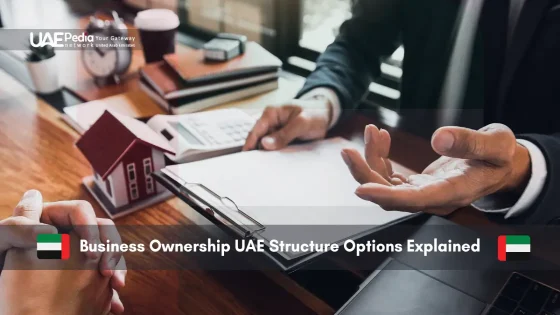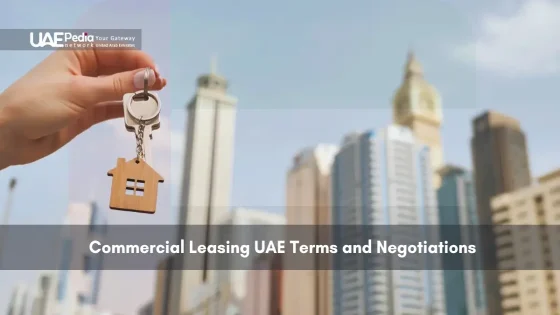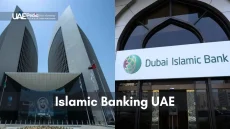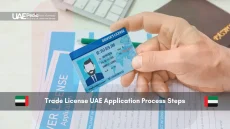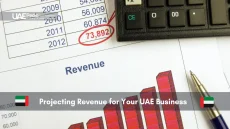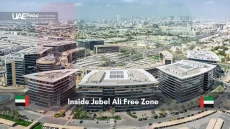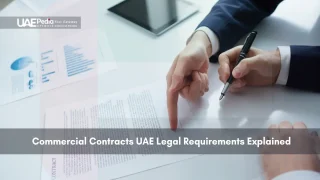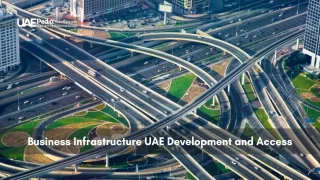Over 80% of foreign investors in the Gulf region select the UAE for their initial business ventures. This desert-to-dynasty transformation isn’t just about skyscrapers—it’s a carefully crafted ecosystem where global ambitions meet local opportunities.
The region’s corporate frameworks act like golden keys. They unlock tax-efficient operations, strategic trade routes, and partnerships spanning from Dubai’s tech parks to Ras Al Khaimah’s industrial zones. You’ll find free zones tailored for startups alongside mainland structures designed for scaling enterprises.
Abu Dhabi’s Hub71 has supported over 357 startups as of early 2025, with its latest cohort securing over $145 million in funding through its unique mix of funding access and regulatory flexibility. As industry expert Zaid Al Hindi notes: “The Emirates doesn’t just host companies—it engineers their success stories.”
Why does this matter for your venture? Three reasons:
- Customizable legal structures adapt as your enterprise evolves
- 100% foreign ownership options in specific sectors since 2021 reforms
- Seamless access to markets across Africa, Asia, and Europe
Navigating the UAE Business Environment in 2025
Imagine launching your venture where ancient trade routes meet futuristic innovation—welcome to the Emirates. Over 40 specialized free zones act as launchpads, from Dubai’s fintech sandbox to Sharjah’s creative clusters. These zones aren’t just real estate; they’re ecosystems where entrepreneurs access everything from 3D-printed offices to AI-driven customs clearance.
Understanding Market Trends and Opportunities
In 2024, startups at Abu Dhabi’s Hub71 secured a record $2.17 billion in funding, marking a 44.7% increase from the previous year., while Ras Al Khaimah’s industrial zone attracted 78 new manufacturers. Why the boom? Three factors:
- Zero corporate tax in most free zone benefits
- 72-hour business licensing in Dubai South
- Dedicated “golden visa” programs for top talent
As of 2025, the UAE hosts over 67 Free Zones, each tailored to specific industries such as technology, finance, e-commerce, and manufacturing. These zones offer benefits like 100% foreign ownership, tax exemptions, and streamlined business setup processes, making them attractive for foreign investors. Ref.: “The Ultimate Guide to Free Zone Company Setup in UAE (2025).” [!]
Understanding the UAE’s Regulatory Reforms and Corporate Tax Landscape
Since 2021, reforms have allowed 100% foreign ownership of mainland companies in various sectors, including renewable energy and AI. As legal advisor Fatima Al Maktoum explains: “The Emirates rolls out red carpets, not red tape—if you know which doors to knock.” Digital portals now handle 89% of license renewals, cutting paperwork from weeks to hours.
Choosing your location matters deeply. Jebel Ali Port connects you to 3.5B consumers within 8 flight hours, while Dubai International Financial Centre courts global banks with common-law frameworks. For a strategic roadmap, pair local expertise with your growth timeline—the difference between surviving and thriving in this desert oasis of opportunity.
Federal Decree-Law No. 26 of 2020, effective from June 1, 2021, permits 100% foreign ownership of onshore companies in the UAE, eliminating the previous requirement for a major Emirati shareholder or agent. This legal reform significantly enhances the country’s appeal to foreign investors. Ref.: “Full foreign ownership of commercial companies.” [!]
Business Ownership Structures in the UAE
Picture this: 47% of new ventures in Dubai’s tech districts choose free zones within their first year—but does that make them the right fit for your goals? Let’s unpack the three main paths available, each with unique perks and paperwork.
Comparing Mainland, Free Zone, and Offshore Company Structures
Mainland setups allow operations across the Emirates, and reforms have removed the requirement for a local partner in many sectors. Free zones? Think of them as specialized playgrounds:
- 100% foreign control (no sponsorship needed)
- Zero corporate tax for decades
- Tailored licenses for specific activities like e-commerce or biotech
Offshore entities work best for asset protection—ideal for holding intellectual property or managing international deals. As corporate strategist Layla Al-Farsi advises: “Your structure should mirror your revenue streams, not just today’s rules.”
Tax Implications and Ownership Regulations in the UAE
While mainland firms now allow full foreign control in tech and renewable energy sectors, free zones vs. mainland comparison reveals key differences. Free Zones offer VAT exemptions on exports, while mainland companies benefit from double taxation treaties with numerous countries.
Here’s the twist: Effective June 1, 2023, a 9% corporate tax applies to profits exceeding AED 375,000, with exemptions for qualifying Free Zone activities.—but free zones still offer exemptions if you don’t operate locally. Pro tip: Pair your structure with activities that align with regional growth sectors like AI or sustainable manufacturing.
While Free Zone companies in the UAE can enjoy corporate tax exemptions under the new tax regime introduced in 2023, these benefits apply only if specific criteria are met. Businesses conducting qualifying activities within the Free Zone or internationally remain tax-exempt, whereas those earning income from mainland UAE operations are subject to a 9% corporate tax on profits exceeding AED 375,000. Ref.: “Corporate Tax Exemptions for Free Zone Companies in the UAE: What You Need to Know.” [!]
Comprehensive Guide to Establishing Your Business in the UAE
What if your next venture could launch faster than ordering a latte? The Emirates’ setup process feels like a desert maze at first glance—until you spot the hidden pathways. Let’s chart your course through paperwork oases and licensing checkpoints.
Defining Your Business Goals and Requirements
Start by sketching your activities on a napkin. Are you designing apps for global markets or manufacturing solar panels? Free zones shine for export-focused tech, while mainland setups let you tap local distribution networks. Pro tip: Match your revenue model to location perks like Jebel Ali’s 24-hour customs clearance.
Preparing Documentation and Licenses
Gather these essentials like packing for a sandstorm:
- Passport copies with visa stamps
- Notarized business plan (Arabic/English)
- Proof of initial investment capital
Setting up a business on the Dubai mainland requires several steps, including registering with the Dubai Economy and Tourism (DET) and obtaining relevant approvals. The process involves identifying your business activity, securing office space, and submitting notarized documents to economic departments. Ref.: “Dubai Business Setup 2025: Mainland vs Free Zone Explained.” [!]
Dubai’s DET portal processes the majority of licensing applications digitally, streamlining the business setup process. But watch for zone-specific quirks—Abu Dhabi Global Market requires AML compliance checks, while RAK’s offshore registry needs apostilled documents.
| Factor | Mainland | Free Zone |
|---|---|---|
| Setup Time | 4-6 weeks | 72 hours |
| Minimum Investment | $27k | $13k |
| Local Presence Required | Yes (service agents) | No |
| VAT Registration | Mandatory | Export exemptions |
As legal consultant Amal Khalid advises: “Treat your license like a metro card—it only works if you’re headed in the right direction.” Pair your paperwork with regional growth sectors, and you’ll ride the dunes smoother than a falcon in flight.
Expert Advice on Selecting the Appropriate Company Formation
Ever felt like choosing a company structure is deciphering hieroglyphics without a Rosetta Stone? Let’s simplify it. Your ideal setup depends on three factors: where your opportunities lie, how you manage time, and what assets need protection. Think of it as matching your venture’s DNA to the Emirates’ evolving landscape.
Engaging Professional Advisors and Consultants
Local experts are your human GPS in this desert of paperwork. A seasoned consultant once told me: “Saving on advisory fees today often costs triple tomorrow in compliance headaches.” They decode regulations faster than Google Translate, especially for niche licenses like drone logistics or crypto trading.
Top firms help you:
- Map taxation scenarios across free zones vs. mainland
- Streamline the incorporation process from 6 weeks to 6 days
- Identify hidden costs in visa quotas or office space leases
“read more: Starting a Business UAE Step by Step Guide“
Conducting In-Depth Market and Regulatory Research
Your success starts with a truth bomb: 63% of failed ventures here skipped proper market sizing. Start by analyzing:
| Focus Area | Toolkit | Outcome |
|---|---|---|
| Competitor Landscape | Dubai Chamber Reports | Spot gaps in services |
| License Requirements | DED Interactive Portal | Avoid application rejections |
| Tax Exposure | VAT Simulation Models | Optimize profit margins |
Pro tip: Pair this intel with asset protection strategies. Offshore holding companies? Mainland trade licenses with IP clauses? Your research dictates the playbook. As they say in the souks: “Knowledge weighs nothing—but carries fortunes.”
Maximizing Opportunities in UAE Free Zones and Mainland
Picture navigating a marketplace where sand meets silicon chips—free zones and mainland setups each offer distinct paths through the Emirates’ thriving economy. Whether you’re launching a robotics lab or exporting artisanal goods, your choice shapes everything from daily operations to decade-long growth.
“read also: UAE Employee Rights Under Labor Law“
Understanding Free Zone Benefits and Limitations
Free zones act like specialized hubs, offering plug-and-play solutions for global-minded ventures. A Dubai tech startup founder shared: “We saved $40k annually through tax exemptions—but realized later we needed mainland access for local contracts.” Here’s how they stack up:
| Factor | Free Zones | Mainland |
|---|---|---|
| Ownership | 100% foreign | Varies by sector |
| Tax Benefits | Exemptions for 15-50 years | 9% corporate tax over $102k |
| Infrastructure | Pre-built tech parks | Custom workspace options |
| Ideal For | Export-focused industries | Local service providers |
Local professionals often recommend hybrid models. One consultant noted: “Begin in a Free Zone to leverage tax benefits, then expand to the mainland to access the local market directly.” This approach balances cost efficiency with market penetration.
The regulatory environment supports scaling—63% of manufacturers in Sharjah’s free zones expand to mainland within three years. Key insights? Match your structure to supply chains. Food exporters thrive near Jebel Ali Port’s infrastructure, while media firms cluster in Dubai Studio City’s creative hub.
While Free Zones offer benefits like 100% foreign ownership and tax exemptions, they may limit your ability to operate directly in the UAE market. If your business requires direct access to the local market or plans to operate outside of the Free Zone, a mainland setup is the more suitable option. Ref.: “Mainland vs Free Zone: UAE Business Setup Guide.” [!]
Optimizing Your UAE Business Structure
Charting your course through the Emirates’ corporate landscape feels like plotting constellations—each decision illuminates new paths. Tech startups scaling through free zones and logistics giants anchoring in mainland hubs prove there’s no universal blueprint. Your industry DNA—whether robotics or renewable energy—determines which framework fuels growth.
Starting in a Free Zone for tax savings and then expanding to the mainland once you’ve built client relationships is a strategy recommended by local professionals. This phased approach balances cost efficiency with market penetration. Ref.: “Free Zone vs. Mainland in Dubai 2025: Key Differences.” [!]
Tailoring your approach matters most. A fashion e-commerce brand might prioritize free zone tax perks, while a medical equipment supplier could need mainland licenses for hospital partnerships. As one Sharjah-based founder shared: “We redesigned our entire strategic market entry plan after realizing local distributors required physical offices.”
Three compass points for success:
- Align structures with customer accessibility—digital nomads need different setups than brick-and-mortar retailers
- Monitor regulatory shifts like seasonal winds—the country updates policies faster than most refresh their coffee
- Invest in expert navigation—seasoned advisors spot icebergs before they breach
Read More:
The Emirates rewards those who blend preparation with adaptability. Whether you’re drafting contracts in a Dubai high-rise or negotiating partnerships in Abu Dhabi’s date markets, remember: every global empire here began with a single, well-placed step. Ready to turn your vision into venture?
Mainland companies let you operate anywhere in the UAE and partner with local sponsors, while free zones offer 100% foreign ownership but limit activities to their geographic zone. Free zones also provide tax exemptions and faster licensing.
While free zones often provide corporate tax holidays or exemptions, recent federal regulations may apply depending on your activity type and revenue thresholds. Always consult advisors to align your structure with evolving policies.
With prepared documents, free zone setups can wrap up in 3-5 days. Mainland approvals might take 2-4 weeks, as they require additional clearances from the Emirate’s Economic Department and local sponsors.
Yes! Many entrepreneurs start in free zones for speed and ownership, then expand to mainland for broader market access. You’ll need to reapply for licenses and adjust your ownership structure during the transition.
Tech startups, trading firms, and service providers often favor zones like Dubai Internet City or DMCC. Manufacturing and logistics lean toward Fujairah or Jebel Ali Free Zones due to port access and warehousing perks.
For LLCs, yes—a UAE national must hold 51% ownership or act as a service agent (for professional licenses). Free zones bypass this, letting you retain full control without local partnership requirements.
If your revenue exceeds AED 375,000 annually, VAT registration applies regardless of your business location. Free zones don’t exempt you, but some offer VAT refund schemes for specific activities like exports.
